Theory & methodology
Our theoretical foundation is broad and deep. We believe in theories as a piece that can solve something, but not everything. Throughout our working life, we have seen that the cohesion of theories and methods makes the biggest difference when theory and practice meet.
Dive into Ex3 People's theoretical foundations to help you understand the current paradigm.
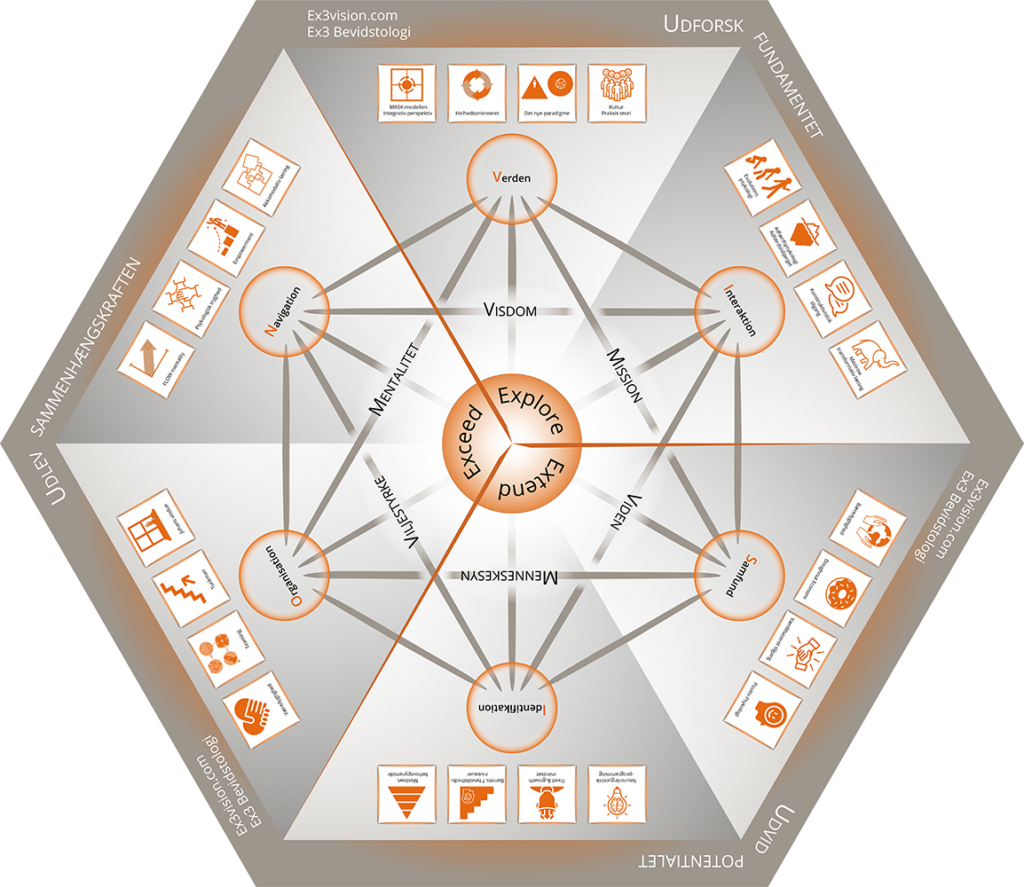
We are inspired by both old and new
New theories & methods
It is both a (re)gift and a challenge to be part of our time, where we research and describe. The complexity increases as new knowledge and new perspectives are brought into play.
We are concerned with the paradigm shift that has affected humanity over the past 20-30 years. A paradigm shift that requires a holistic, multidimensional and integrative perspective. It calls for an attitude of transformation to create future-proof solutions and life for people and the planet.
- and therefore also calls for alertness in organisations and companies.
The World - Outer Proflection
Relating to the WORLD - and letting WISDOM form you.
THE WORLD AND WISDOM: Trust in something greater.

Integrative perspective
We are inspired by a multidimensional and integrative perspective, bringing together theory and practice by a holistic approach. This perspective helps in understanding options, attaining the best possible flexibility and inclusion, so that we can best achieve goals and exploit potential.
- inspired by Kim Wilber et al.

Holistic View
All of our models, tools and processes are based on our holistic approach, as we believe that everything is connected and interdependent. So in order to solve challenges, we must pay attention to detail, integrity and coherence.

The New Paradigm
We are in the midst of a major paradigm shift that calls for imperative changes. Changes in our mindsets, our actions, our way of treating ourselves, each other and the planet. Green transition and sustainability are merely a small part of this.
- inspired by Kate Raworth

The Culture Model
Practice Theory
The concept of culture in practice theory refers to culture as something that we do. This is both a way of understanding culture, as well as a method for identifying and respecting differences and similarities between practices. This makes it a good starting point for intercultural communication.
- inspired by Amy Edmondson

The MASK Model
Integrative perspective

Holistic View
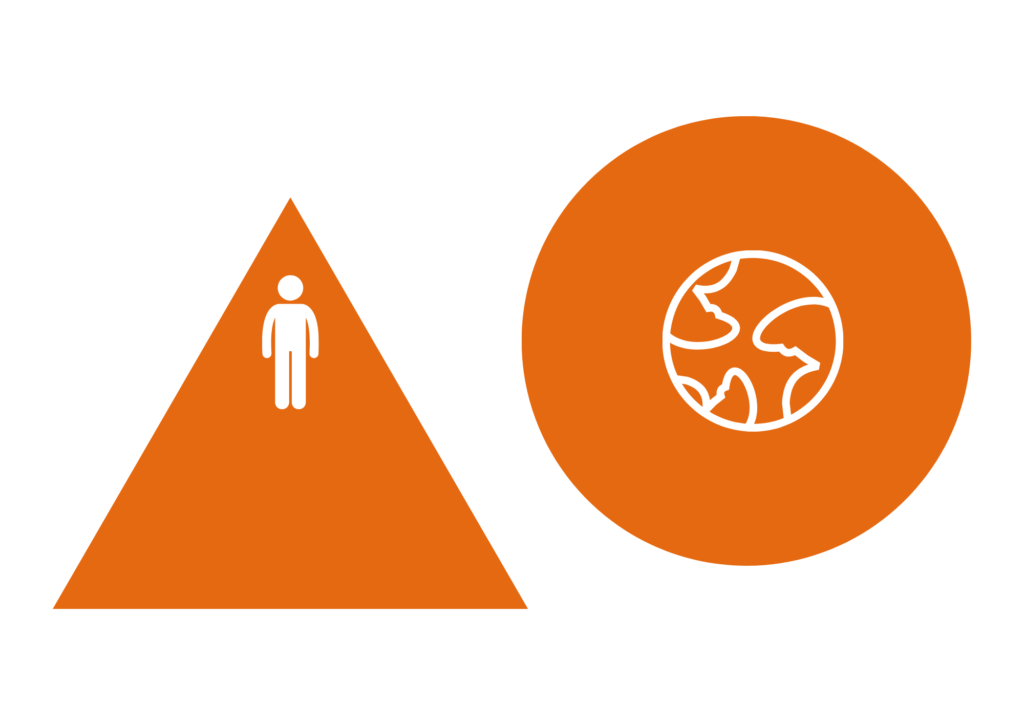
The New Paradigm
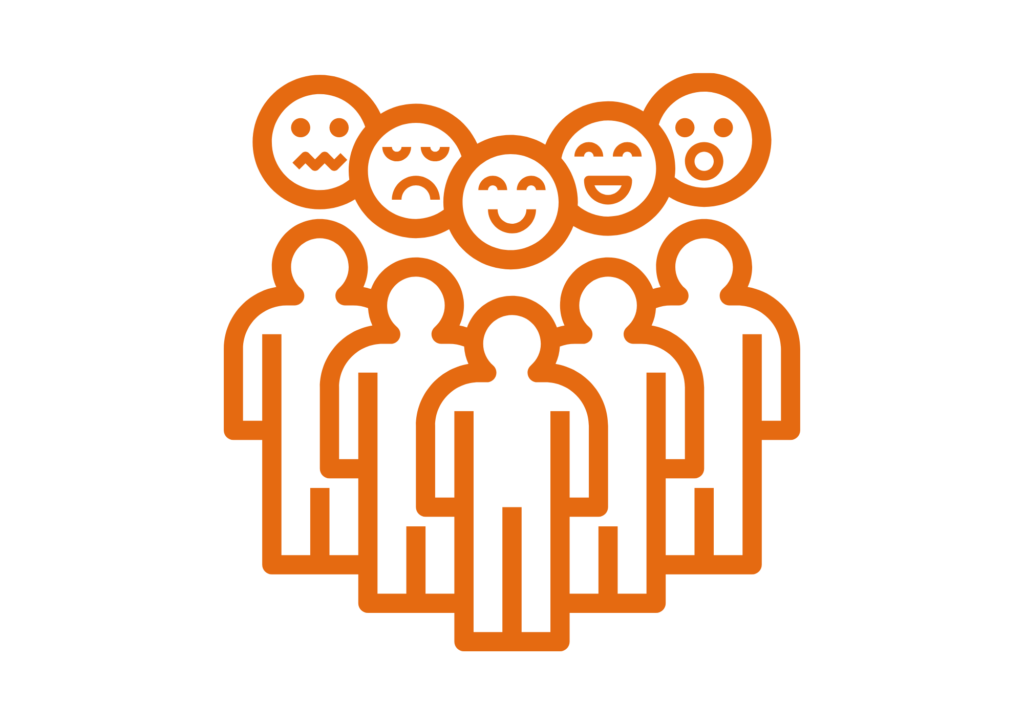
The Culture Model
Practice Theory
Interaction - Inner Proflection
Being in INTERACTION – and letting the MISSION guide you.
INTERACTION AND MISSION: Be in conscious constant motion.

Evolutionary Psychology
The direction in psychological science that studies human behaviour. The starting point is how certain psychological mechanisms and behavioral patterns have developed, and which have given us special advantages in adapting to the environment and survival.
- inspired by Robert Kegan and Harari et al.

Behavioural Psychology
Behavioral psychology is about being observant of people's behaviour. Behavioural design is the art of being able to change people's behavior, based on evidence-based insights and people's way of making decisions. We connect these two.
- inspired by Daniel Kahneman, Morten Munster, Anette Prehn

Constructivist
Approach
Constructivism is a view within social science that describes how we perceive and construct the world. This theoretical approach is under constant construction.
- inspired by Jean Piaget
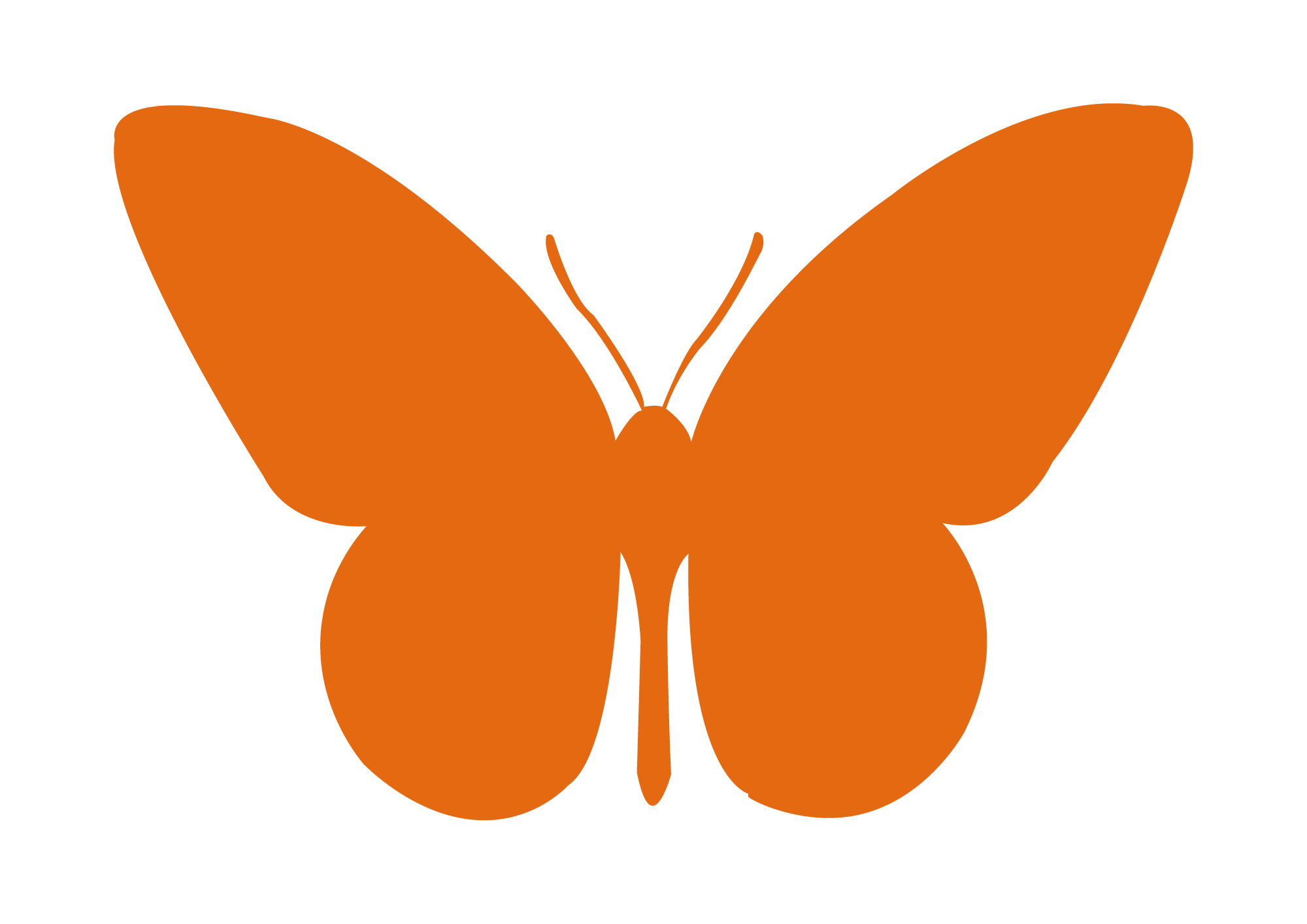
Transformative Learning
Transformative learning can be defined as the process by which we transform challenging frames of reference, assumptions and expectations, to become more comprehensive, insightful, open-minded, reflective, and emotionally open to change.
- inspired by Mezeirow
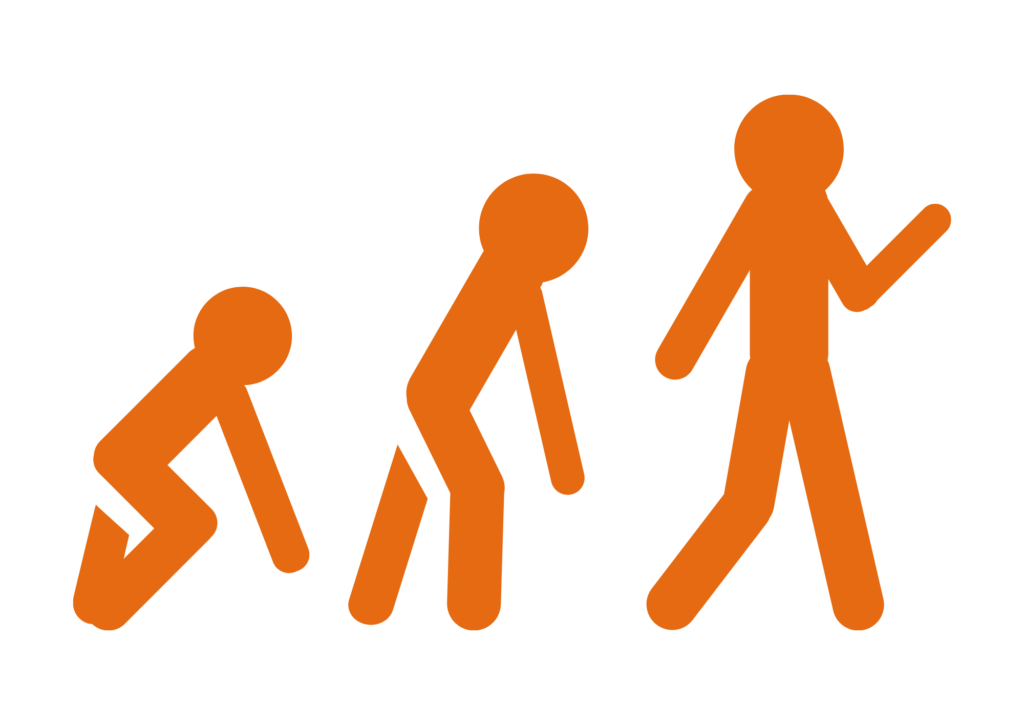
Evolutionary Psychology

Behavioural Psychology
The behavioural iceberg

Constructivist Approach
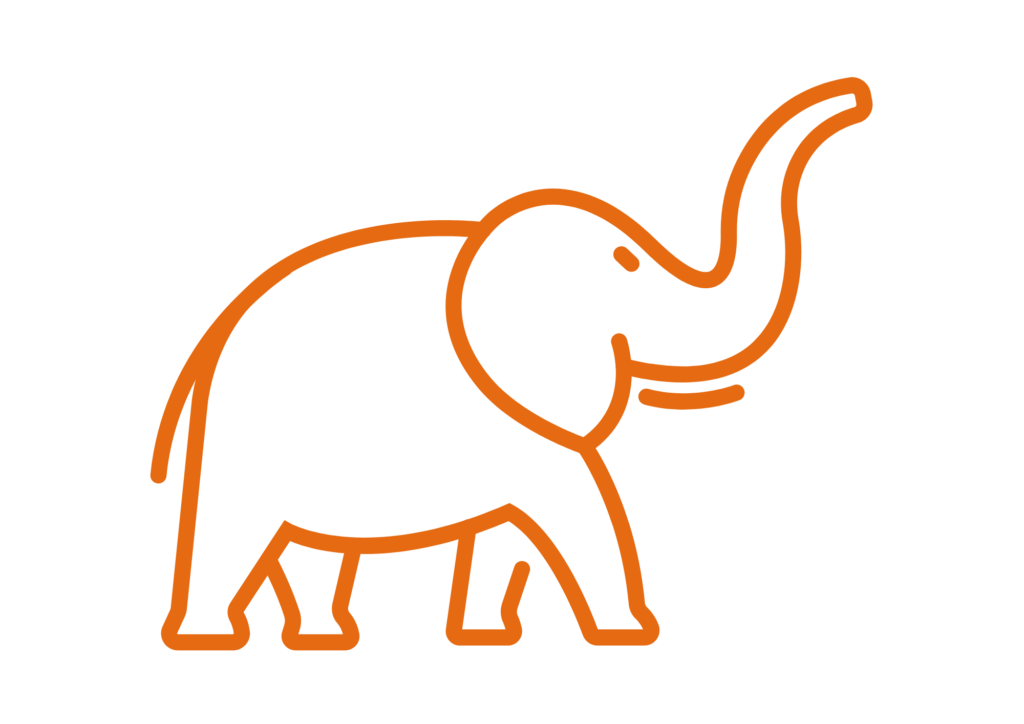
The MASK Model
Integrative perspective
Society - Outer Proflection
Relating to the WORLD - and letting WISDOM shape you.
SOCIETY AND KNOWLEDGE: Be respectful of the development of time.

Sustainability
Ensuring sustainable positive results without destroying the existing basis, e.g. environment or resources. We relate to sustainability in a broad perspective. Thus, People, Planet, Profit are benchmarks when in our Ex3 view of sustainability.
- inspired by the UN Sustainable Development Goals

Doughnut Economy
Donut Economi is a model for sustainable economic development, based on seven principles for the future economy in the world, in society and in organisations. This model sets the framework for how the economy should cater for sustainability and human well-being.
- inspired by Kate Raworth

Value Based Approach
A value-based approach aims to tie vision, mission and values together with the strategy, work processes, management styles and actions. Values create a foundation for culture, as well as for how we relate as people.

Positive Psychology
Positive psychology is the science of well-being and optimal human function, i.e. it is the science of what it takes for people to feel good and perform well.
- inspired by Hans Henrik Knoop
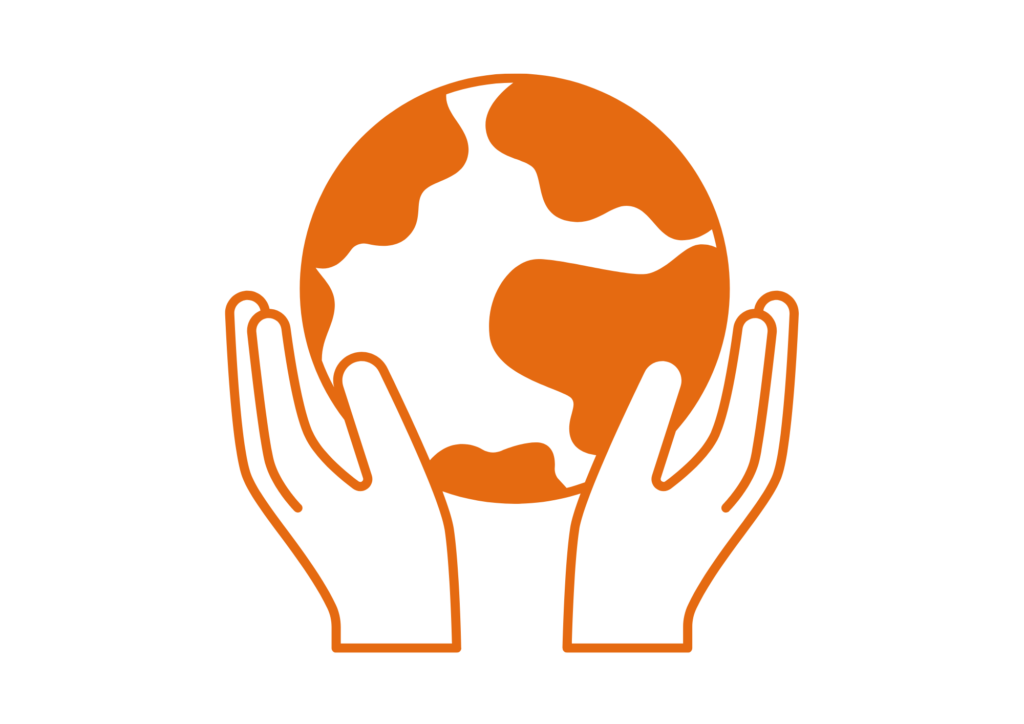
Sustainability

Doughnut Economy

Value Based Approach
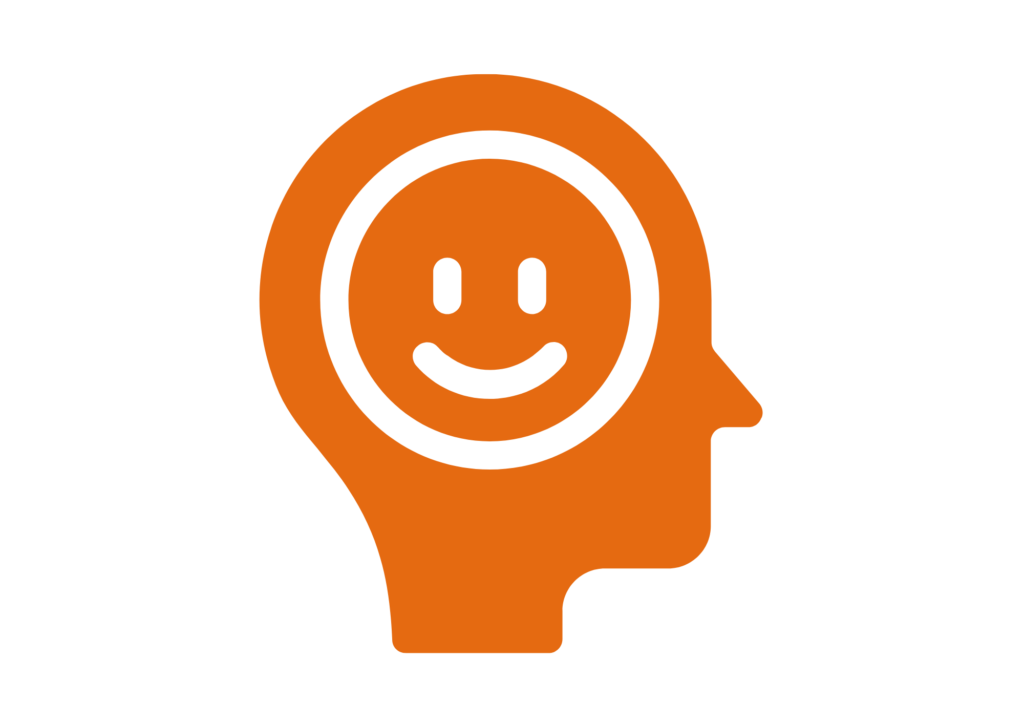
Positive Psychology
Identification - Inner Proflection
Uniting with your IDENTIFICATION - and letting VIEW OF HUMAN NATURE guide you.
IDENTIFICATION AND VIEW OF HUMAN NATURE: Uniting community and ego.

NLP
NLP is an abbreviation for Neuro-Linguistic Programming. NLP is based on the fact that the human brain, is programmed through experiences and language, into more or less appropriate patterns that influence on the ways we think and act.

Fixed & growth mindset
This theory describes two fundamentally different views of abilities and development opportunities. With a Fixed Mindset, we view abilities and talents as innate. With a Growth Mindset, we see that abilities can be developed and that mistakes are seen as learning and a natural path to mastery. - inspired by Carol Dweck

Maslow's Hierarchy of Needs
The model describes five needs that man has always strived - and will always strive - to fulfill in life. It extends from basic physical needs to more self-fulfilling needs, where there is a surplus for further development.
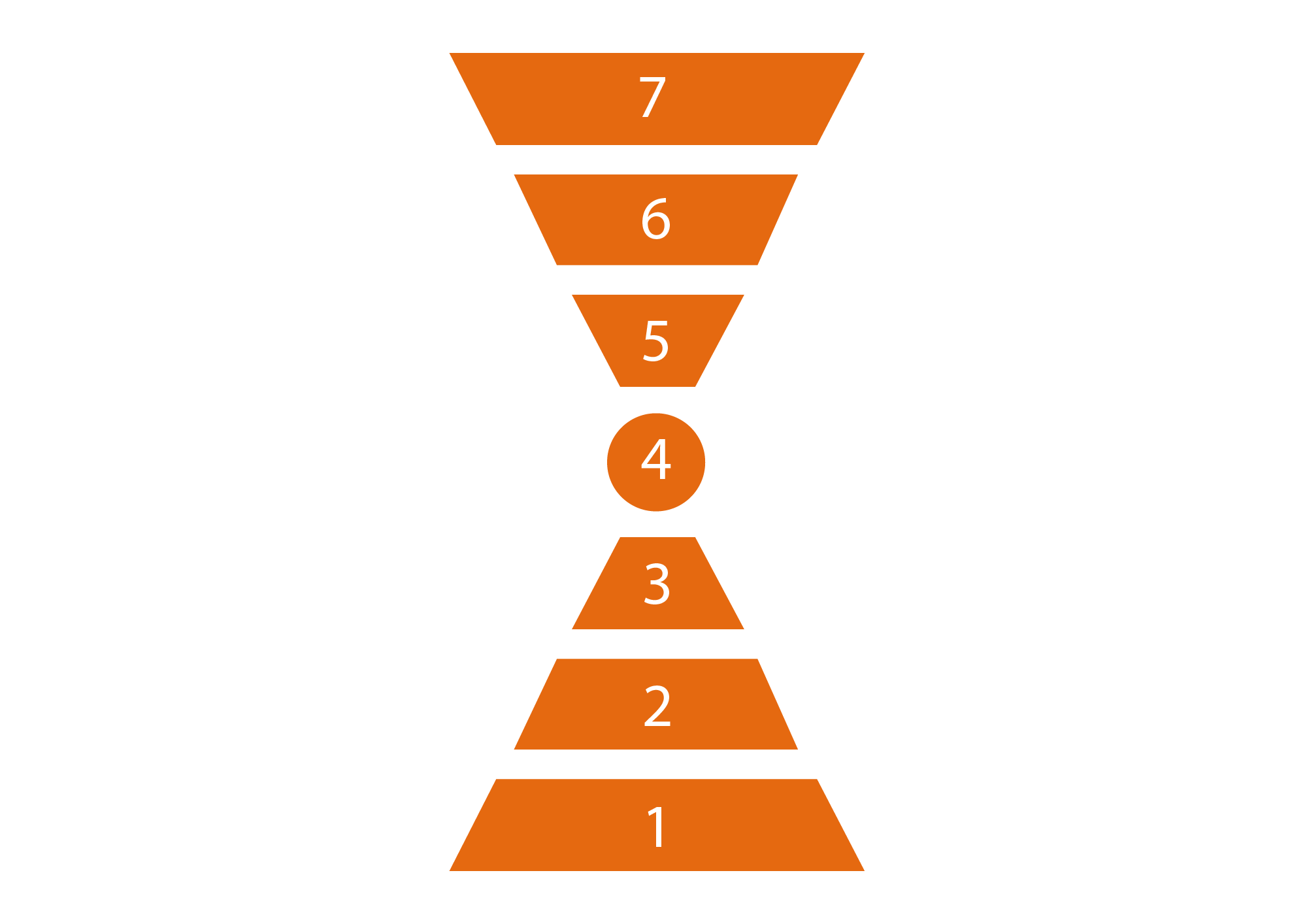
Barret's 7
Levels of Consciousness
Barrett's model of consciousness, extends Maslow's pyramid of needs is into 7 levels of consciousness. The model itself is evolutionary and serves as frame for understanding development of both individual and collective levels of consciousness. - inspired by Richard Barret
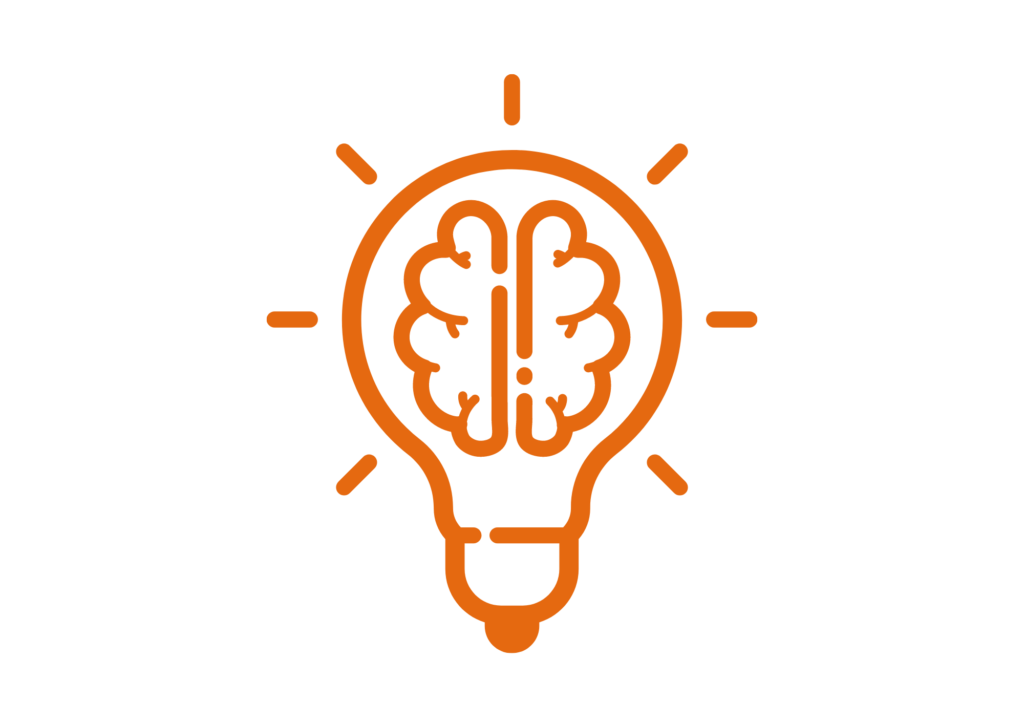
Neuro-linguistic programming

Fixed & growth mindset
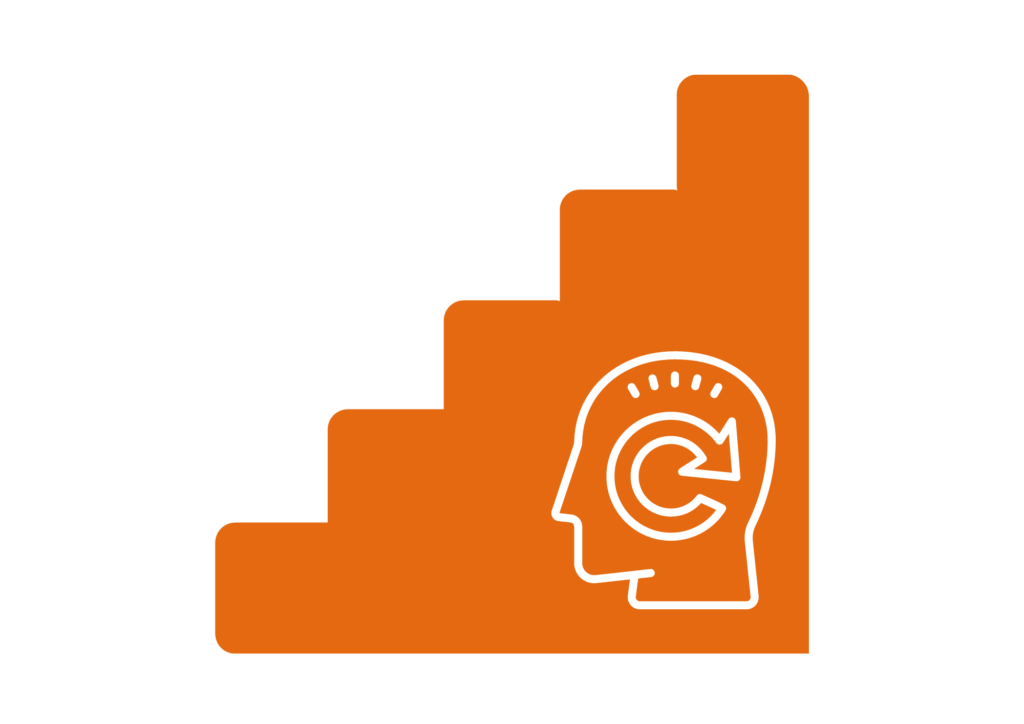
Barret's 7 Levels of Consciousness

Maslow's Hierarchy of Needs
Organisation - Outer Proflection
Relating to ORGANISATION – and letting WILLPOWER shape you.
ORGANISATION AND WILLPOWER: Getting in touch with collective consciousness.

Tuckman
Tuckman's model for team development works with 4 stages: forming, storming, norming and performing. The model describes the development phases of teams, and how they meet challenges, tackle problems, find solutions, plan work, deliver results and grow together.
Tuckman's Theory of Group Development

Teaming
Teaming is a social skill, and if mastered, it can help create a 'contribution culture' where everyone bring their knowledge and skills to the table. The teaming theory is highly topical, as it i.a. focuses on interdisciplinary teamwork and distance teams. - inspired by Amy Edmonson

Inner Sustainability
Inner sustainability is the inside of sustainability. It creates an increased awareness behind your actions. This means that internal adjustments go hand in hand with external adjustments. As a supplement to the UN's Sustainable Development Goals, 9 inner sustainability goals have been developed. - inspired by the Center for Inner Sustainability

Johari's Window
Johari's Window is a well-known model and a tool developed by psychologists to improve communication, teamwork, feedback and conflict management. It helps to give you a better understanding of yourself and the people with whom you communicate.

Tuckman
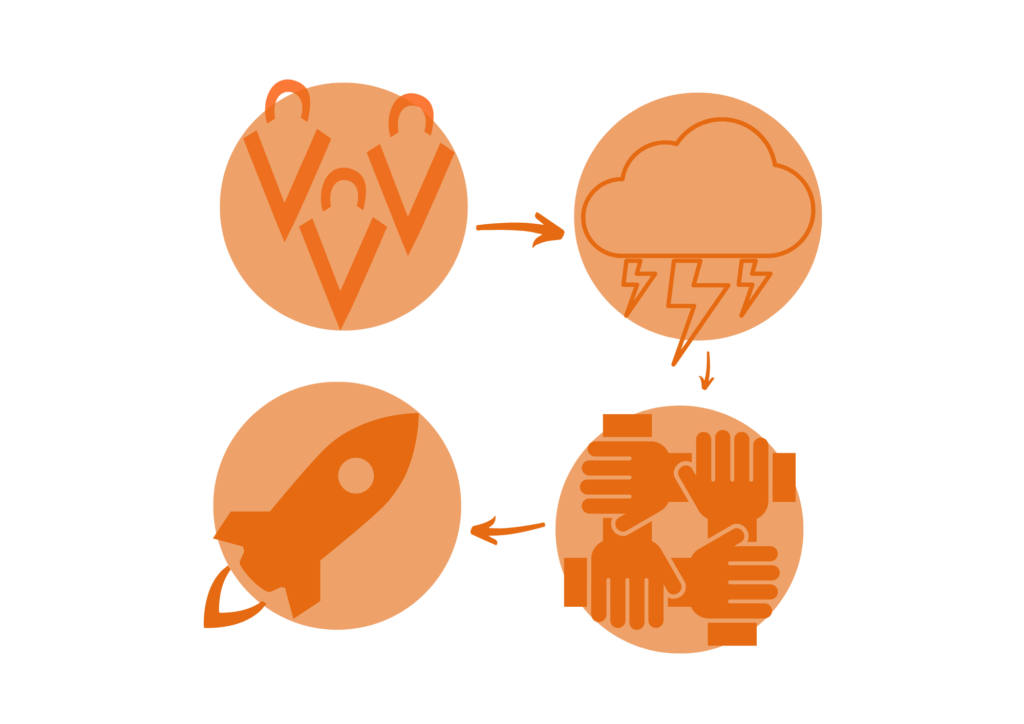
Teaming
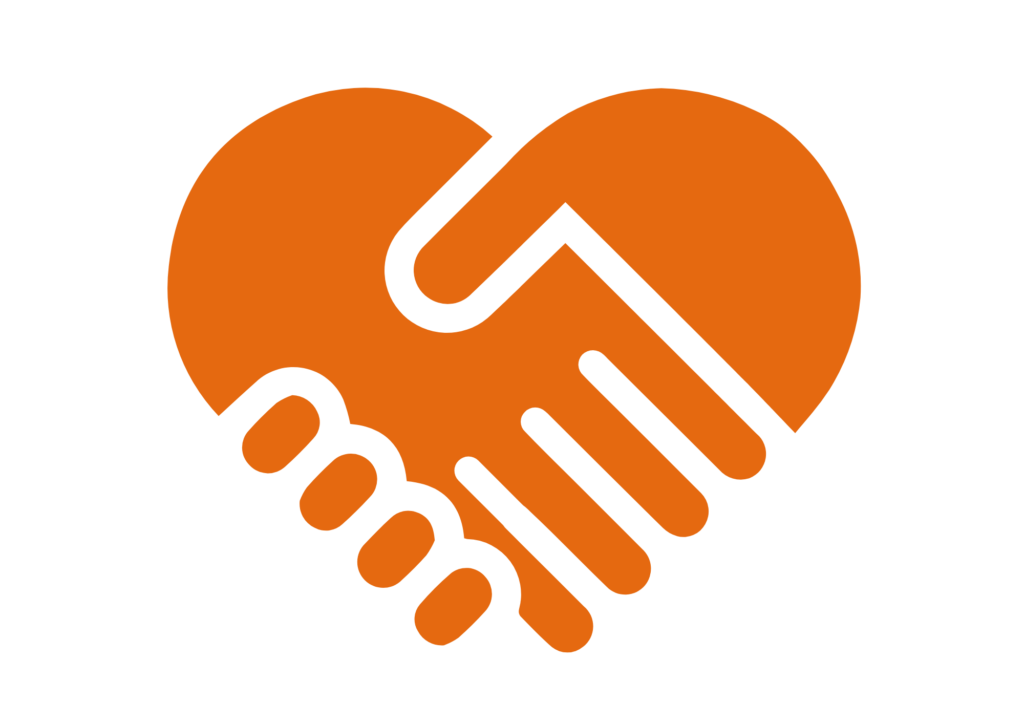
Inner Sustainability

Johari's Window
Navigation - Inner Proflection
Being in NAVIGATION – and letting MENTALITY guide you.
NAVIGATION AND MENTALITY: Being in your heart and making a difference.

Psychological Safety
Psychological safety can be described as "the confidence in the room". Confidence that creates a sense of security to take interpersonal risks, by talking openly, sharing ideas and concerns and asking questions. With psychological security, a culture is created where employees dare to express themselves. - inspired by Amy Edmonson

Accommodative Learning
Accommodative learning involves a full or partial restructuring of already existing mental schemas. This learning takes place when influences from the environment cannot be accommodated in the already existing mental structures and patterns. - inspired by Illeris

FLOW Mentality
Flow can be defined as a state of self-forgetful engrossment in an activity that completely captures attention and gives a sense of effortlessness. The experience of flow is often associated with forgetting time and place and with an intense feeling of meaning, satisfaction and strength. - inspired by Mihaly Csikszentmihalyi

Empowerment
Empowerment is when a person is strengthened in the ability to act, control and take ownership of decisions that affect living conditions and opportunities. It is the process from powerlessness or disempowerment to a greater degree of power over one's own life conditions. - inspired by the ideas of Poulo Freire

Accommodative Learning

FLOW Mentality

Empowerment
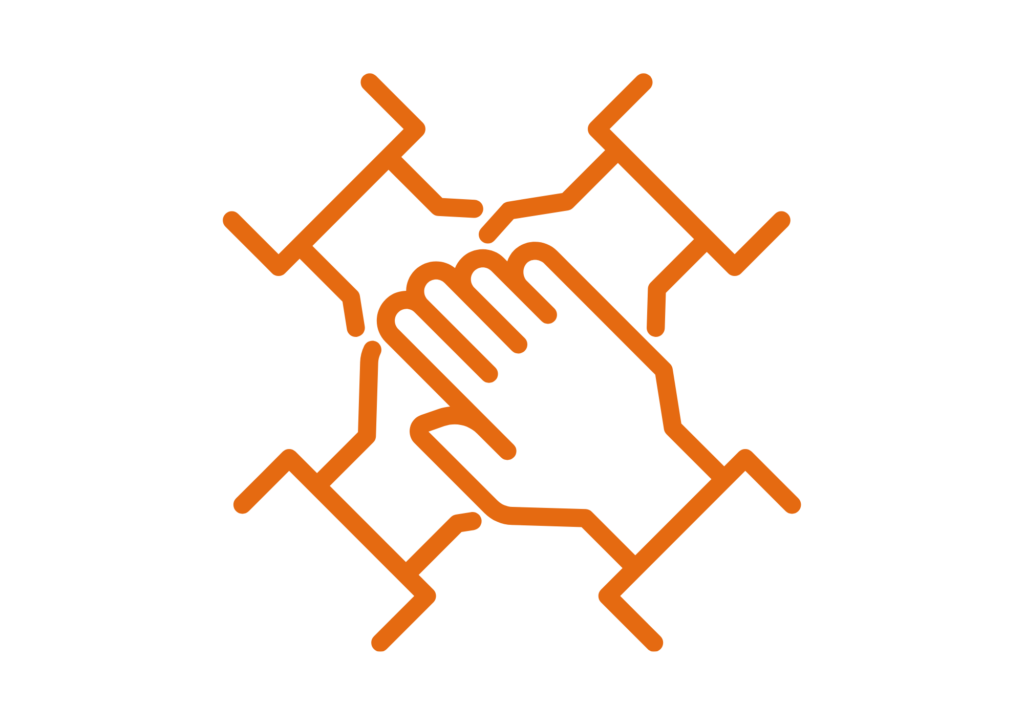
Psychological Safety
We look forward to welcoming you to a universe filled with practical theories, methods and tools to support your everyday development.
